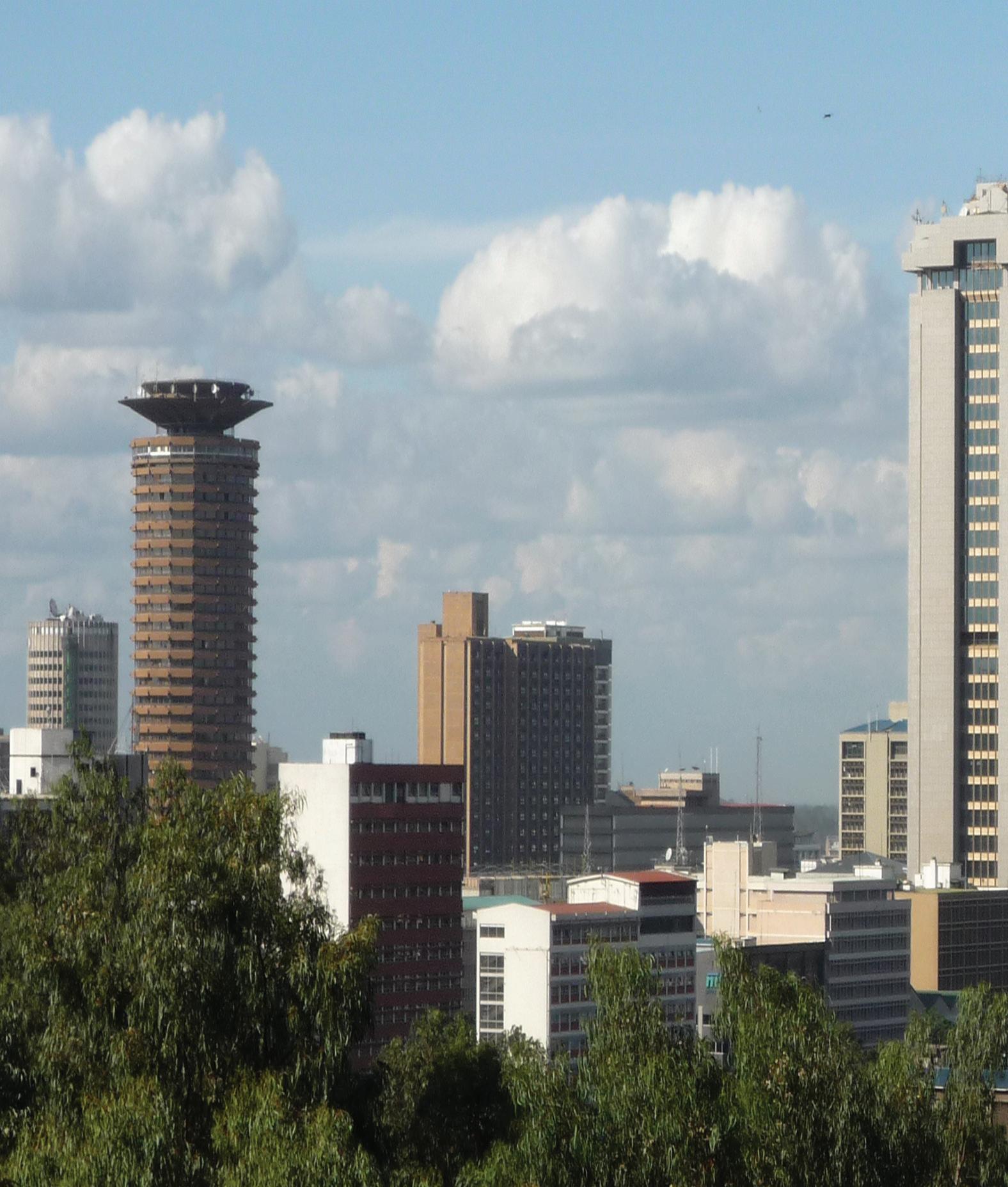
4 minute read
Bilha Kahindi Sophomore discusses life in Kenya
from February 2015
by Le Journal
(Ph ot o b y A nna S c h r o e r )
BILHA Kahindi
Advertisement

STORY BY ANNA SCHROER FEATURES EDITOR AND SYDNEY DANIELS EDITORIALS EDITOR LAYOUT BY ANNA SCHROER
Thousands of miles away from her hometown Bilha Kahindi transitions to life in America.

Niarobi, Kenya. (Photo courtesy of Wiki Commons)

(Photo by Anna Schroer) Africa. The land of poverty, Ebola, the safari and violence. At least that’s what the media tells us. What it doesn’t tell us? Africa is the home of many people from all backgrounds and ethnicities. And Africa is the homeland of our new Sion student. One new student who is 8,421 miles from her mother, her father, her brother and sisters. This is the distance from her hometown. Her country. This is the distance she is from Kenya. Bilha Kahindi is a sophomore from Nairobi, Kenya. Th omas More Prep Marion Hi gh S ch ool ( Ph ot o c o u r tesy o f Th omas More Prep) Kahindi, a transfer from Thomas More Prep Marian High school in Hays, Kansas plans on staying at Sion for the next three years before moving on to university. Kahindi’s move is due to her parents wanting her to study at a top tier university such as Oxford, Yale or Harvard. For her entire life she has lived in the capital of Kenya. Her parents went to work, her mother a professor at the University of Nairobi, her father an entrepreneur. Kahindi went to school, wrote novels and participated in the teenage nightlife. Months ago the lifestyle Kahindi was used to changed when she got off the plane in America for the first time. “My plane landed in Detroit and everything was different than it was back home, “ Kahindi said. “ It was kind of scary because I was there alone.” The cultural differences were a stark surprise, according to Kahindi. Teenage pregnancy is extremely taboo, and one could be disowned for even thinking about sex before marriage. Which is why the show “16 and Pregnant” was shocking to the Kenyan native. The national religion of Kenya is Christianity, according to the Kenyan Information Guide, but many people are Muslim as well, according to Kahindi. The differences continue into family life. Kahindi said Kenyan value systems are steeped in respect for elders. Even slamming doors and raising of voices is viewed as dishonorable regardless of one’s age. Gender inequality is not prevalent in large cities like Nairobi, however in the rural countryside, the sole job of women is to raise children and complete domestic duties such as cooking and cleaning. In Kenya, first comes love, then comes marriage, then comes a dowry. Then the baby carriage. After marriage, the groom is to pay a dowry to the family of his bride. The dowry can be paid with shillings, which are Kenyan money, cattle or land according to Kahindi. The parents, aunts and uncles of both the bride and groom gather in a meeting where they negotiate payment. The bride’s parents total how much they’ve invested in their daughter and how much she means to them before settling on a price. According to Kahindi, the dowry makes marriage more important than just going to church and getting a certificate. “My cousin was purchased for 4.5 million Kenyan shillings [or almost $5 million] in addition to a herd of cattle,” Kahindi said. “Though, in some cases if two people love each other, but the man can not afford to pay a dowry, the couple will run away together.” In the United States during presidential elections, the television is plastered with sensational political advertisements. In Kenya during presidential elections, tribes go to war. There are 42 different tribes in Kenya, each with their own language. Kahindi wants to become involved in the aviation field because she has a penchant for planes. However, she wants to stay on the safe side and do the paperwork. Not the flying. “I want to be an attorney to go into aviation. I don’t want to die or go missing somewhere which is why I don’t want to fly planes,” Kahindi said. Her flight to America started the educational journey to achieve academic accolades. Now living with her aunt and uncle, Kahindi still continues to write novels and work towards her goal of becoming a lawyer 8,421 miles away from her native country, Kenya. Bilha is more than the exchange student from Africa. She’s the girl who speaks English, Kiswahili, Kikuyu, Meru, Luo, Kamba and Mesai. She’s the girl who sings in the shower and believes the bathroom tiles are her screaming fans. She’s the girl who’s prepared to take America by storm.












